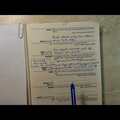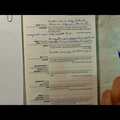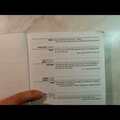The verb ‘HAVE’ with different auxiliaries
CAN – I can have, he can have; I can not have, I cannot have, I can’t have, he can not have, he cannot have, he can’t have; (Wh) Can (sy) have?
You can have a shower after me.
Tell him that he can’t have a rest now – we have a lot of work to do.
Can we have a chat now?
Why can’t we have a break? All of us are very tired!
COULD (*past and **conditional present) – I could have, he could have, I could not have, I couldn’t have, he could not have, he couldn’t have, (Wh) Could (sy) have?
*I could have lunch before I went back to work.
**I could have a chat with you now if I didn’t have to finish this urgent job.
*He could have a nap after work and before his children arrived home from school.
**Bob could have some remarks that he would like to share with us.
*They couldn’t have enough time to get to the station, so I think they didn’t catch the train.
**He couldn’t have an own flat in the town centre if he hadn’t saved money for over ten years.
*Could you have any ideas where to find a mechanic when your car broke down?
**Could they have some friends who could help them?
*Where could you have a holiday when you took your dog with you?
**Where could you have a holiday now if you took your dog with you?
MAY – I may have, he may have, I may not have, he may not have, (Wh) May (sy) have?
I may have a lesson tomorrow at 5, but if not, I can go and help you to move your home.
He may not have an idea how to ask her to work with him, and that’s why he hasn’t asked he so far.
May we have a talk now or shall I call you later?
When may we have a day off this month?
MIGHT – I might have, he might have, I might not have, He might not have, (Wh) Might (sy) have?
He might have a backache after cleaning all the house.
She might not have a haircut. I heard her favourite hairdresser isn’t working for 2 months this summer.
Might they have a chance to put everything right?
What time might they have a message from the office? Maybe we can arrive long before that and mend the broken machine.
WILL – I will have, I’ll have, he will have, he’ll have, I will not have, I won’t have, he will not have, he won’t have, (Wh) Will (sy) have?
We’ll have a great weekend, I’m sure.
My father won’t have a drink with his previous boss who fired him last year.
Will she have a ride or she’s still afraid of horses?
When will they have concert in this town?
WOULD – I would have, I’d have, he would have, he’d have, I would not have, I wouldn’t have, he would not have, he wouldn’t have, (Wh) Would (sy) have?
He would have a sandwich if he knew how to prepare one.
I wouldn’t have an excuse if I were you.
Would Sue have an opportunity to give an explanation for the events?
Which of your nicknames would you have on your nametag?
SHALL I? – Shall I have? Shall I not have? Shan’t I have?
Shall I have a drink with your boss and talk to her about your promotion?
When shall I have a game of chess with you?
SHALL WE? – Shall we have? Shall we not have? Shan’t I have?
Shall we have a discusson about the tasks?
When shall we have a meal together?
SHOULD – I should have, I should’ve, he should have, he should’ve, I should not have, I shouldn’t have, he should not have, he shouldn’t have, (Wh) Should (sy) have?
I should have a good relationship with my in-laws, but they don’t like anything I do.
You shouldn’t have a snack before lunch!
Should we have a think about selling our house?
I heard something you were talked about. Why should Bob have an appointment for the doctor tomorrow? Does he have a serious health problem?
OUGHT TO – I ought to have, he ought to have, I ought not to have, I oughtn’t to have, he ought to have, he oughtn’t to have, (Wh) Ought (sy) to have?
You ought to have a workout every other day – your health would be better.
You oughtn’t to have an argument with your parents about your pocket money.
Ought she to have a nap before working again?
When ought we to have a meeting?
USED TO – I used to have, he used to have, I did not use to have, I didn’t use to have, he did not use to have, he didn’t use to have, (Wh) Did (sy) use to have?
I used to have much more time before exam season.
I didn’t use to have a rest in the afternoon because I used to work then for years.
Did you use to have plans for changing the arrangement of the furniture is your home?
How many books did you use to have when you were younger?
NEED TO – I need to have, he needs to have, I do not need to have, I don’t need to have, he does not need to have, he doesn’t need to have, (Wh) Do I need to have?, (Wh) Does he need to have?
I need to have a snack because without it I couldn’t work now.
He needs to have skills to get this job.
You don’t need to have time to solve this riddle.
She doesn’t need to have success for earning a lot of money.
Do I need to have a lot of time to get to the station in this rainy weather?
Does he need to have a shave in the morning? I always have to wait for him to finish in the bathroom.
Why do we need to have a workout together? I don’t like to be in the gym with him – he has a terrible smell.
How much coffee does he need to have to work all day long?
MUST – (*necessity; **certanity/likelihood), I must have, he must have, ***must not (=to forbid!) , ***mustn’t = I mustn’t have, he mustn’t have, (Wh) Must (sy) have?
*I must have a chance to get a job at the office as a manager.
**He must have a lot of money – he’s got his salary today!
*Must we have a discussion about this problem today? We haven’t got all the details.
*Where must I have a lecture? Sorry, I’m new here.
***You mustn’t have a swim here. The water is freezing colt.
HAVE TO – I have to have, he has to have, I do not have to have, I don’t have to have, he doesn not have to have, he doesn’t have to have, (Wh) Do I have to have? (Wh) Does he have to have?
I have to have a think now – I must solve this problem right now.
He has to have a decision about the trip, because we have to plan our route.
I don’t have to have a lesson in this subject – I have all the qualifications I need.
She doesn’t have to have a haircut before the school-leaving party.
Do I have to have a shave every morning, even at weekends?
Does he have to have a coffee after every meals?
Why do I have to have a quarrel with you every time I come home a little bit later?
Where does he have to have a rest after the race?
BE ABLE TO – I am able to have, I’m able to have, I am not able to have, I’m not able to have, he is able to have, he’s able to have, he is not able to have, he isn’t able to have, you are able to have, you’re able to have, you are not able to have, you aren’t able to have, (Wh) Am I able to have?, (Wh) Is he able to have?, (Wh) Are you able to have?
I’m able to have a dream if I am able to sleep.
He’s able to have a nap even in a noisy factory.
We’re able to have a chat in a calm café.
I’m not able to have a talk about this topic in the office before my colleagues.
He isn’t able to have a normal conversation because of his toothache.
People aren’t able to have fun after the funeral.
Are you able to have lunch after your wife’s accident?
Is he able to have a game with his broken wrist?
Where am I able to have a wash?
When are you able to have a rest in this messy room?
Where is he able to have a dance in this boring town?
MUST HAVE III – (certanity/likelihood) I must have had, I must’ve had, he must have had, he must’ve had
You must have had a dream, you just can’t remember it.
They must’ve had a decision but haven’t told us yet.
He must have had an argument at wotk, that’s why he is so angry now.
She must’ve had a long run, because she told me she was very tired.
CAN’T HAVE III – (certanity/likelihood) I can’t have had, he can’t have had
Bob can’t have had a holiday last week, because I saw him every day to leave for work.
They can’t have had any lessons in this topic because now they don’t understand anything I tell them about it.
COULD HAVE III – I could have had, I could’ve had, he could have had, he could’ve had, I could not have had, I couldn’t have had, he could not have had, he couldn’t have had, (Wh) Could (sy) have had?
I could have had a bath last night at home but we haven’t finished the bathroom renovation yet.
I couldn’t have had a swim in the pool even if you had wanted – there was no water in it.
Could you have had a nap if you could go home in the break?
Where could you have had a quiet walk in that crowded beach?
MAY HAVE III – I may have had, he may have had, I may not have had, he may not have had, (Wh) May (sy) have had?
They may have had a lecture – they can answer all the questions!
He may not have had a good sleep last night, that’s why he is very grumpy with everybody now.
May Sue have had a meal before leaving for the party? She hasn’t tried any of my special snacks.
What time may they have had a meeting yesterday? What time should I record in the report?
MIGHT HAVE III – I might have had, he might have had, I might not have had, he might not have had, (Wh) Might (sy) have had?
They might have had a chat face to face before the meeting – that’s why they agreed in everything so quickly.
They might not have had any money, but they pretended that they wanted to buy the flat.
Might she have had a rude quarrel with the boss? I think that could be a good reason for firing her.
When might he have had a meal during the drive? The car is very small and he had to concentrate on driving all the time without stopping because of the heavy traffic.
WOULD HAVE III – I would have had, I’d have had, he would have had, he’d have had, I would not have had, I wouldn’t have had, he would not have had, he wouldn’t have had, (Wh) Would (sy) have had?
I would have had some time for helping them if I hadn’t had to deal with other things.
He wouldn’t have had a long holiday if he had known how much work he had to finish.
Would you have had a day off if she had asked you?
Why would we have had a talk with him if he hadn’t wanted to listen to us?
SHOULD HAVE III – I should have had, I should’ve had, he should have had, he should’ve had, I should not have had, I shouldn’t have had, he should not have had, he shouldn’t have had, (Wh) Should (sy) have had?
You should have had a tink before getting into your car after the drinking party at the pub.
He shouldn’t have had a break when everybody was waiting for him to finish.
Should I have had some lessons before taking the exam?
Why should we have had a talk with him if he hadn’t wanted to listen to us?
OUGHT TO HAVE III – I ought to have had, he ought to have had, I ought not to have had, I oughtn’t to have had, he ought to have had, he oughtn’t to have had, (Wh) Ought (sy) have had?
He ought to have had a shave before he had a meeting with the managing director.
They oughtn’t to have had a drill near the border – it might have meant an international conflict.
Ought we to have had a look at the house before buying it?
When ought he to have had a workout to have some chance for winning the race?
DIDN’T NEED TO – I didn’t need to have, he didn’t need to have
Bob didn’t need to have a try, so he didn’t do anything.
I didn’t need to have a run at the workout, and I was very glad – I was very very tired that day. I just stood and watched the others running.
NEEDN’T HAVE III – I needn’t have had, he needn’t have had
I needn’t have had a duble coffee – it was so cold in the street, that I woke up completely.
You needn’t have had a haircut for the party – it won’t be held because half the tram got ill.
HAD TO – I had to have, he had to have, I did not have to have, I didn’t have to have, he did not have to have, he didn’t have to have, (Wh) Did (sy) have to have?
I had to have a smell at every dish because they thought some of them had gone bad.
I didn’t have to have a rest after my first workday – I could have a workout in the afternoon and I felt great in the evening, too.
Did you have to have an energy bar during the race?
Which books did you have to have for the course?
HAVE BEEN ABLE TO – I have been able to have, I’ve been able to have, he has been able to have, he’s been able to have, I have not been able to have, I haven’t been able to have, he has not been able to have, he hasn’t been able to have, (Wh) Have (sy) been able to have? (Wh) Has (sy) been able to have?
I have been able to have a workout 4 times a week for about 10 years.
He has been able to have a party every weekend since the beginning of summer.
I haven’t been able to have a discussion with her about our financial problems since she started to earn money and she spent her salary for himself.
He hasn’t been able to have a break since he got a new boss.
Have you been able to have a drink with your friends since you got married?
Has he been able to have fun with his children since he got divorced?
How long have you been able to have conversations with English people?
Since when has he been able to have a holiday at the beach for weeks every summer?






